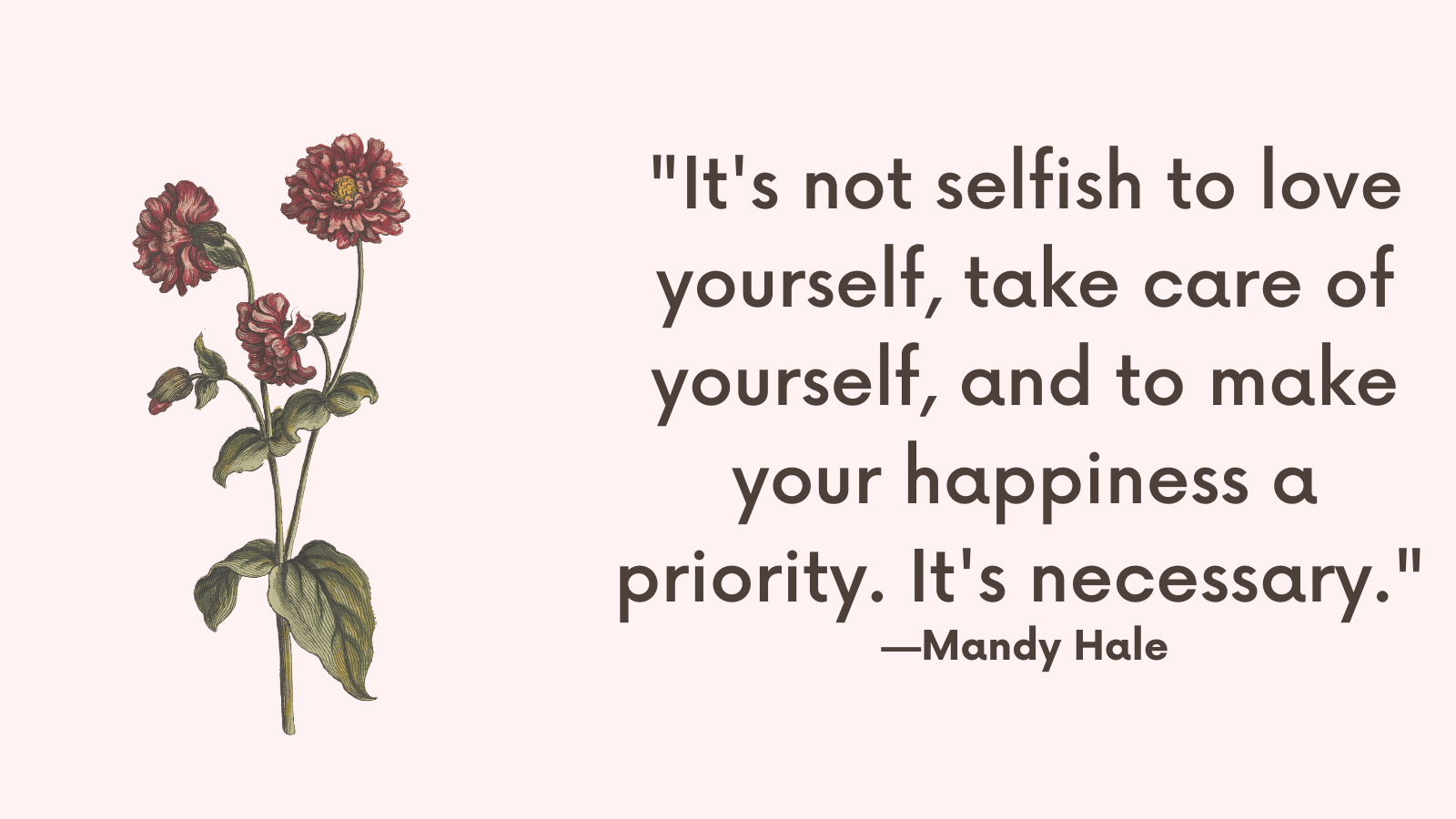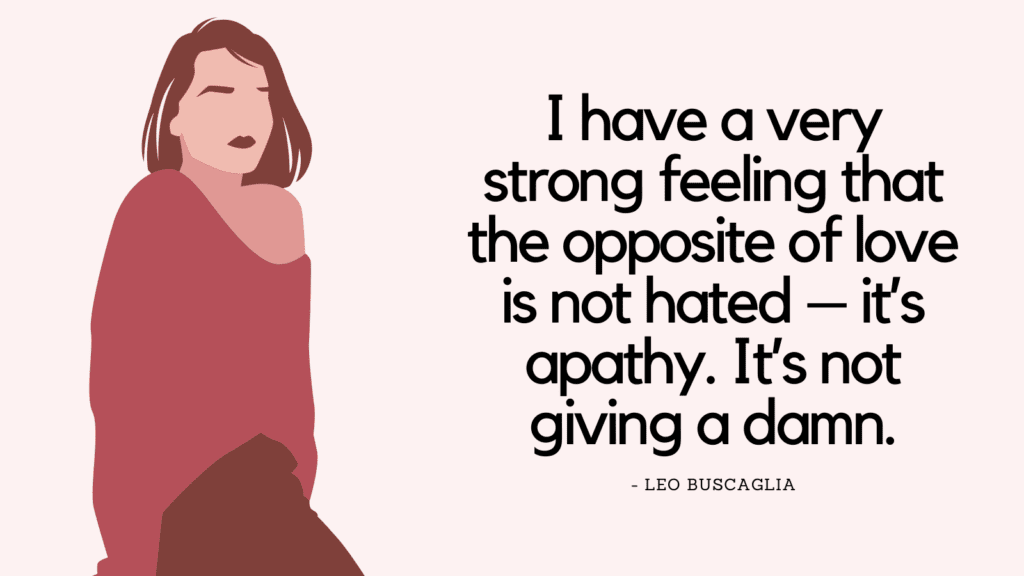This post contains some of the best Edith Eger quotes to inspire you.
Who Is Edith Eger?
Edith Eger is a concentration camp survivor.
She survived unspeakable horrors; but instead of letting her painful past destroy her, she chose to turn it into a powerful gift – to help others heal.
In her first book The Choice, she tells the story of her survival in the concentration camps, her escape, healing, and journey to freedom.
Her book The Gift expands on her message of healing.
It is a practical and inspirational guide that shows us how to stop destructive patterns thoughts that may be keeping us imprisoned in the past and find freedom and enjoy life.
Edith’s unique background gives her amazing insight that can help you handle difficult situations. (*)
1. On Victimhood
#1. The Worst Prison Is the One You Built For Yourself.
“The worst prison is the one I built for myself.
Although our lives have probably been very different, perhaps you know what I mean. Many of us experience feeling trapped in our minds. Our thoughts and beliefs determine, and often limit, how we feel, what we do, and what we think is possible.”
– Edith Eva Eger
Related: 10 Powerful Techniques To Control Your Negative Thoughts
#2. Suffering Is Universal. But Victimhood Is Optional.
Suffering is universal. But victimhood is optional. There is no way to escape being hurt or oppressed by other people or circumstances. The only guarantee is that no matter how kind we are or how hard we work, we’re going to have pain. We’re going to be affected by environmental and genetic factors over which we have little or no control. But we each get to choose whether or not we stay a victim. We don’t get to choose what happens to us, but we do get to choose how we respond to our experience.
Many of us stay in a prison of victimhood because, subconsciously, it feels safer. We ask “Why?” over and over, believing that if we could just figure out the reason, the pain would lessen. Why did I get cancer? Why did I lose my job? Why did my partner have an affair? We search for answers, for understanding, as if there’s a logical reason to explain why things happened the way they did. But when we ask why, we’re stuck searching for someone or something to blame— including ourselves.
Why did this happen to me?
Well, why not you?””
– Edith Eva Eger
Related: Get Out of Your Own Pity Party: 6 Ways to Stop Pitying Yourself
#3. “Victims ask, “Why me?” Survivors ask, “What now?”
“When I ask “What now?” instead of “Why me?” I stop focusing on why this bad thing happened—or is happening—and start paying attention to what I can do with my experience. I’m not looking for a savior or a scapegoat. Instead, I begin to look at choices and at possibilities.”
– Edith Eva Eger
“Victimhood is rigor mortis of the mind. It’s stuck in the past, stuck in the pain, and stuck on the losses and deficits: what I can’t do and what I don’t have.
This is the first tool for moving out of victimhood: approach whatever is happening with a gentle embrace. It doesn’t mean you have to like what’s happening. But when you stop fighting and resisting, you have more energy and imagination at the ready to figure out “What now?” To move forward instead of nowhere. To discover what you want and need in this moment, and where you want to go from here.”
– Edith Eva Eger
“Every behavior satisfies a need. Many of us choose to stay victims because it gives us license to do zero on our own behalf. Freedom comes with a price. We’re called to be accountable for our own behavior—and to take responsibility even in situations we didn’t cause or choose.”
– Edith Eva Eger
Related: Building Mental Strength: 13 Things Mentally Strong People Don’t Do
#4. Keep Showing Up For Yourself All Day, Every Day.
“I often say that we need to give our children roots, and give them wings. We need to do the same for ourselves. The only one you have is you. You’re born alone. You die alone. So start by getting up in the morning and going to the mirror. Look yourself in the eye and say, “I love you.” Say, “I’m never going to leave you.” Hug yourself. Kiss yourself. Try it!
And then keep showing up for yourself all day, every day.”
– Edith Eva Eger
“When we start loving ourselves, we start patching up the holes in our hearts, the gaping places that feel like they’ll never be filled. And we start making discoveries.”
– Edith Eva Eger
“We can all find strength and freedom, even within terrible circumstances. Honey, you’re in charge, so take charge. Don’t be Cinderella, sitting in the kitchen waiting for a guy with a foot fetish. There are no princes or princesses. You have all the love and power you need within. So write down what you want to achieve, the kind of life you want to live, the kind of partner you want to have. When you go out, look like a million-dollar baby. Join a group of people dealing
with similar struggles, where you can care for each other and commit yourselves to something bigger than yourselves. And then get curious. What’s next? How’s it going to turn out?”
– Edith Eva Eger
#5. You Can Be Wounded And Accountable.
“Our minds come up with all sorts of brilliant ways to protect us. Victimhood is a tempting shield because it suggests that if we make ourselves blameless, our grief will hurt less. As long as Emily identified as the victim, she could pass all the blame and responsibility for her well-being on to her ex-husband. Victimhood offers a false respite by deferring and delaying growth. The longer we stay there, the harder it is to leave.”
– Edith Eva Eger
“We can be wounded and accountable. Responsible and innocent. We can give up the secondary gains of victimhood for the primary gains of growing and healing and moving on.”
– Edith Eva Eger
“The whole reason to step out of victimhood is so we can step into the rest of our lives.”
– Edith Eva Eger
Related: 5 Steps to Take Back Your Power And Start Loving Your Life
#6. In Every Crisis There Is a Transition.
“In every crisis there is a transition. Awful things happen, and they hurt like hell. And these devastating experiences are also opportunities to regroup and decide what we want for our lives. When we choose to respond to what’s happened by moving forward and discovering our freedom to, we release ourselves from the prison of victimhood.”
– Edith Eva Eger
2. On Avoiding Suffering
#7. A Feeling Is Only a Feeling.
“We disable our children when we take away their suffering. We teach them that feelings are wrong or scary. But a feeling is only a feeling. There’s no right or wrong. There’s just my feeling and yours. We are wiser not to try to reason others out of their feelings, or try to cheer them up. It’s better to allow their feelings and keep them company, to say, “Tell me more.” To resist saying what I used to tell my children when they were upset because someone had teased or excluded them: “I know how you feel.” It’s a lie. You can’t ever know how someone else feels. It’s not happening to you. To be empathetic and supportive, don’t take on other people’s inner life as if it is your own. That’s just another way of robbing others of their experience—and of keeping them stuck.”
– Edith Eva Eger
Related: 6 Simple Ways to Manage Difficult Emotions and Control Them
#8. The Opposite of Depression Is Expression.
“The opposite of depression is expression.
What comes out of you doesn’t make you sick; what stays in there does.”
– Edith Eva Eger
#9. Don’t Inhale Your Anger to Your Breast.
“Of course, many factors account for each person’s potential for health and disease, and we do great damage to ourselves when we believe we’re to blame for our illnesses or injuries. But I can say with certainty that the emotions we don’t allow ourselves to express or release stay bottled inside, and whatever we’re holding on to affects our body chemistry and finds expression in our cells and neural circuitry. In Hungary we say, “Don’t inhale your anger to your breast.” It can be harmful to hold on to feelings and keep them locked inside.”
– Edith Eva Eger

#10. Trying to Shield Others or Ourselves From Our Feelings Doesn’t Work In the Long Run.
“Trying to shield others or ourselves from our feelings doesn’t work in the long run. But many of us are trained from a young age to disown our inner responses —in other words, to give up our genuine selves. A child says, “I hate school!” and a parent replies, “Hate is a strong word,” or “Don’t say hate,” or “It can’t be that bad.” A child falls down and skins her knee, and a grown-up says, “You’re okay!” In trying to help children regroup or bounce back from hurt or difficulty, caring adults can minimize what the child is going through, or inadvertently teach that some things are permissible to feel and others aren’t. Sometimes the cues to change or deny a feeling are less subtle: Calm down! Get over it. Don’t besuch a crybaby.
More than by what we say, children learn by watching what we do. If adults create a home environment where anger isn’t allowed to be expressed, or where anger is vented in harmful ways, children learn that strong feelings aren’t permissible or safe.
Many of us are in the habit of reacting instead of responding to what’s going on. We’ve often learned to hide from our emotions—suppress them, medicate them, run away.”
– Edith Eva Eger
Related: Emotional Sobriety: 3 Ways to Move on After Addiction
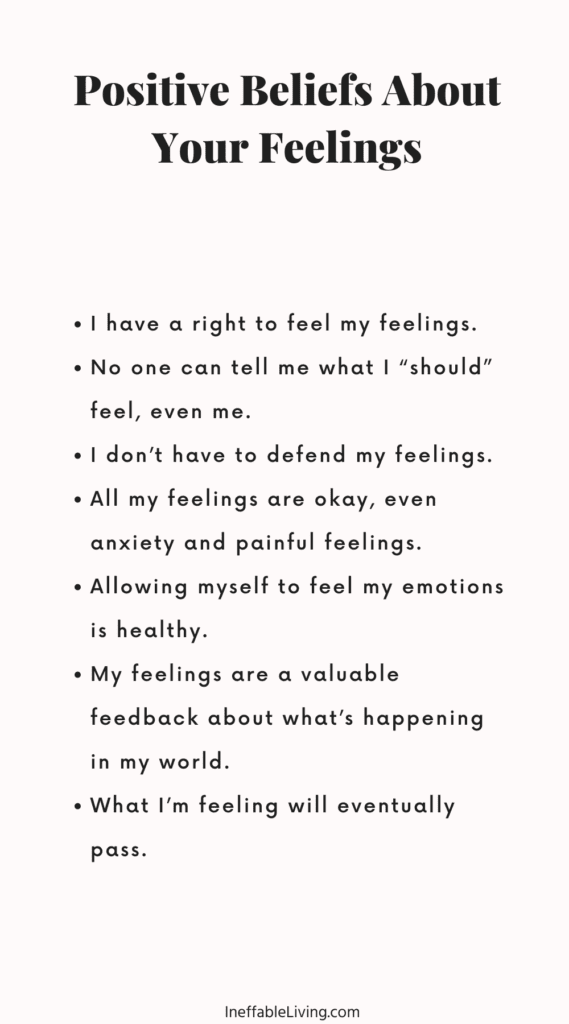
#11. You Can’t Heal What You Don’t Feel.
“But you can’t heal what you don’t feel.”
– Edith Eva Eger
“As long as you’re avoiding your feelings, you’re denying reality. And if you try to shut something out and say, “I don’t want to think about it,” I guarantee that you’re going to think about it. So invite the feeling in, sit down with it, keep it company. And then decide how long you’re going to hold on to it. Because you’re not a fragile little somebody. It’s good to face every reality. To stop fighting and hiding. To remember that a feeling is just a feeling—it’s not your identity.”
– Edith Eva Eger
#12. Yesterday’s Victims Can Easily Become Today’s Victimizers.
“Sometimes the feelings we run from aren’t the uncomfortable or painful ones. Sometimes we avoid the good feelings. We shut ourselves off from passion and pleasure and happiness. When we’ve been victimized, there’s a part of our psyche that identifies with the victimizer, and sometimes we adopt that punitive, victimizer stance toward ourselves, denying ourselves the permission to feel good, depriving ourselves of our birthright: joy. That’s why I often say that yesterday’s victims can easily become today’s victimizers.”
– Edith Eva Eger
3. On Self-Neglect
#13. You Are the Only One You’re Going to Have For a Lifetime.
“One of our first fears is of abandonment. Thus we learn early how to get the A’s: attention, affection, approval. We figure out what to do and whom to become to get our needs met. The problem is not that we do these things—it’s that we keep doing them. We think we must in order to be loved.
It’s very dangerous to put your whole life into someone else’s hands. You are the only one you’re going to have for a lifetime. All other relationships will end.”
– Edith Eva Eger
Related: Self-Loathing: How to Stop Self-Hatred and Start Loving Yourself?
#14. If a Good Report Card or Good Manners Earn Love, That’s Not Love At All. It’s Manipulation.
“Unfortunately, many families, in trying to motivate children to do well for themselves, create a culture of achievement in which the child’s “being” gets entwined with her “doing”; she’s taught she matters not for who she is, but for how she performs and behaves. Children are under such intense pressure to get good grades, be high-performing athletes or musicians, ace college entrance tests, earn a degree at a select college or university that will lead to a high-paying job in a competitive field. But if a good report card or good manners earn love, that’s not love at all. It’s manipulation. When so much emphasis is placed on achievement, children don’t get to experience unconditional love—that they’re loved no matter what, that they’re free to be themselves, that it’s permissible to make mistakes, that we’re all in a process of learning and becoming, and that learning can be exciting and joyful.”
– Edith Eva Eger
#15. We Honor Our Children When We Can Create A Culture Of The Joy Of Achievement.
“It’s not good to live with success looming over you, feeling burdened by the need to reach a certain height to be worthy of love. And yet the strengths and skills of our ancestors are also a part of us. It’s our legacy. It’s our prize, too. We honor our children when we can create a culture not of self-aggrandizement or self-effacement, of overachievement or underachievement—but a culture of the joy of achievement. The joy of working hard. Of nurturing our gifts. Not because we have to. Because we’re free to. Because we’re blessed with the gift of life.”
– Edith Eva Eger
#16. There’s No Selfishness in Being Self-Ish
“It’s good to be self-ish: to practice self-love and self-care.”
– Edith Eva Eger
“The problem is that many of us rush to fix and adjust out of habit. We take too much responsibility for others’ problems, training them to rely on us instead of on themselves, and paving our own way toward resentment down the road.”
– Edith Eva Eger
Related: 21 Days to Grow in Self-Love

#17. Generosity Isn’t Generous If We Chronically Give At The Expense Of Ourselves.
“Sometimes life requires us to go with the flow, sometimes it’s the right thing to prioritize others’ needs, to modify our plans. And of course, we want to do everything in our power to support our loved ones, to be sensitive to their needs and desires, to engage in teamwork and interdependence. But generosity isn’t generous if we chronically give at the expense of ourselves, if our giving makes us a martyr or fuels our resentment. Love means that we practice self-love, that we strive to be generous and compassionate toward others—and to ourselves.”
– Edith Eva Eger
“I often say that love is a four-letter word spelled T-I-M-E. Time. While our inner resources are limitless, our time and energy are limited. They run out. If you work or are in school; if you have children, a relationship, friends; if you volunteer, exercise, or belong to a book club, support group, or house of worship; if you’re caring for an aging parent or someone with medical or special needs—how do you structure your time so you don’t neglect yourself? When do you rest and replenish? How do you create a balance between working, loving, and playing?”
– Edith Eva Eger
“It’s true that generosity and compassion are vital to foster. But selflessness doesn’t serve anyone—it leaves everyone deprived.”
– Edith Eva Eger
Related: How to Set Boundaries? 5 Steps to Establish Healthy Emotional Boundaries
#18. Sometimes the Hardest Way to Show Up For Ourselves Is to Ask For Help
“And being self-reliant doesn’t mean you refuse care and love from others.”
– Edith Eva Eger
“Sometimes the hardest way to show up for ourselves is to ask for help.”
– Edith Eva Eger
Related: Learning How to Receive: (7 Steps to Opening Up And Unlock The Power of Receiving)
#19. You Have Something No One Else Will Ever Have. You Have You. For a Lifetime.
“When you’re free, you take responsibility for being who you really are. You recognize the coping mechanisms or behavior patterns you’ve adopted in the past to get your needs met. You reconnect with the parts of yourself you had to give up, and reclaim the whole person you weren’t allowed to be. You break the habit of abandoning yourself.
Remember: you have something no one else will ever have. You have you. For a lifetime.”
– Edith Eva Eger
Related: Raising low self-esteem: 18 Ways to Build High Self-Esteem
4. On Hiding and Keeping Secrets
#20. If You’re Living a Double Life, It’s Going to Catch Up With You.
“If you’re living a double life, it’s going to catch up with you.
When you’re free, you’re able to live with authenticity, to stop straddling the gap between two chairs—your ideal self and your real self—and become congruent. You learn to sit fully in the chair of your own fulfillment.”
– Edith Eva Eger
#21. A strained relationship is both people’s fault.
“Even a marriage begun with passion and connection can grow to feel like a prison cell. It happens slowly over time, and it’s often difficult to see when and how the bars are built. There are the usual intrusions—stress over money or work or children or extended family or illness —and because the couple lacks the time or the tools to resolve these irritations, the worry and hurt and anger build up. After a while it’s even harder to express these feelings, because they lead to tension or arguments, and so it’s preferable to avoid the topics altogether. Before two people know it, they’re living separate lives. The door is open for someone else to come in and attempt to fill what’s been lost.
When a relationship is strained, it’s not one person’s fault. Both people are doing things to maintain the distance and disputes.”
– Edith Eva Eger
Related: Healing From A Codependent Relationship: 4 Ways to Conquer Codependency
#22. Honesty starts with learning to tell the truth to yourself.
“Honesty starts with learning to tell the truth to yourself.”
– Edith Eva Eger
“Healing can’t happen as long as we’re hiding or disowning parts of ourselves. The things we silence or cover up become like hostages in the basement, trying more and more desperately to get our attention.”
– Edith Eva Eger
Related: Higher Self-Awareness and Consciousness: 4 Ways to Connect With Your Inner Self
5. On Guilt And Shame
#23. Guilt Is Rooted In Shame
“Guilt is when you blame yourself, when you believe something is your fault. It’s important to separate guilt from remorse. Remorse is an appropriate response to a harmful mistake we’ve made or a wrong we’ve committed. It’s more akin to grief. It means accepting that the past is the past, that it can’t be undone, and allowing yourself to feel sad about it. I can feel remorse and recognize that all I’ve lived through, all the choices I’ve made, have brought me to today. Remorse is in the present. And it can coexist with forgiveness and freedom.
But guilt keeps you stuck. It’s rooted in shame—when you believe “I’m not worthy”; when you think that you’re not enough, that nothing is enough, no matter what you do. Guilt and shame can be extremely debilitating. But they’re not real assessments of who we are. They’re a pattern of thought that we choose and get stuck in.”
– Edith Eva Eger
“No one is born with shame. But for many of us, the shame message starts early.”
– Edith Eva Eger
Related: 10 Signs You Were Shamed In Childhood
#24. Guilt and Shame Don’t Come From The Outside. They Come From the Inside.
“Ultimately, guilt and shame don’t come from the outside. They come from the inside.
Many of my patients seek out therapy when they’re going through a painful divorce or breakup. They’re grieving the death of a relationship, and the disappearance of all the hopes, dreams, and expectations it represented. But usually they don’t talk about the grief—they talk about the feeling of rejection. “He rejected me.” “She rejected me.” But rejection is just a word we make up to express the feeling we have when we don’t get what we want. Who said everyone should love us? Which god said that we should get what we want, when we want it, how we want it, the way we want it? And who said that having it all is any guarantee? No one rejects you but you.”
– Edith Eva Eger
#25. We Choose How We Talk To Ourselves.
“If we’re to live free of shame, we don’t let others’ evaluations define us.
And most of all, we choose how we talk to ourselves.”
– Edith Eva Eger
“These thoughts will influence how you feel. And how you feel is going to dictate how you act. But you don’t have to live by these standards and messages. You weren’t born with shame. Your genuine self is already beautiful. You were born with love and joy and passion, and you can rewrite your internal script and reclaim your innocence. You can become a whole person.”
– Edith Eva Eger
“If you want to take charge of your thinking, first examine what you’re practicing, and then decide: is it empowering or depleting me? Before you say anything, especially to yourself, ask, “Is it kind and loving?””
– Edith Eva Eger
Related: How To Let Go Of Shame After Trauma?
#26. Fall In Love With Yourself! It’s Not Narcissistic.
“Loving yourself is the only foundation for wholeness, health, and joy. So fall in love with yourself! It’s not narcissistic. Once you begin to heal, what you discover will not be the new you, but the real you. The you that was there all along, beautiful, born with love and joy.”
– Edith Eva Eger
6. On Unresolved Grief
#27. Grief is often not about what happened. It’s about what didn’t happen.
“It is a universal experience for life not to turn out as we want or expect. Most of us suffer because we have something we don’t want, or we want something we don’t have.
All therapy is grief work. A process of confronting a life where you expect one thing and get another, a life that brings you the unexpected and unanticipated.”
– Edith Eva Eger
“Grief is often not about what happened. It’s about what didn’t happen.”
– Edith Eva Eger
Related: Dealing With Grief and Loss 10 Lessons You Learn From Grief
#28. You’re a prisoner and a victim when You minimize or deny your pain—and hold on to regret.
“I’m a prisoner and a victim when I minimize or deny my pain—and I’m a prisoner and a victim when I hold on to regret. Regret is the wish to change the past. It’s what we experience when we can’t acknowledge that we’re powerless, that something already happened, that we can’t change a single thing.”
– Edith Eva Eger
#29. To Resolve Your Grief Is to Release Yourself From Responsibility For All the Things That Weren’t Up to You
“When we have unresolved grief, we often live with overwhelming rage.”
– Edith Eva Eger
“Resolving grief means both to release ourselves from responsibility for all the things that weren’t up to us, and to come to terms with the choices we’ve made that can’t be undone.”
– Edith Eva Eger
“This is the work we get to do in the present: to grieve what happened or didn’t happen, to own up to what we did or didn’t do, and to choose our response now.”
– Edith Eva Eger
“It’s so hard to be where we are, in the present. To accept what was and is, and move on.”
– Edith Eva Eger
Related: Recovering From Grief: How to Get Back to Life After Loss
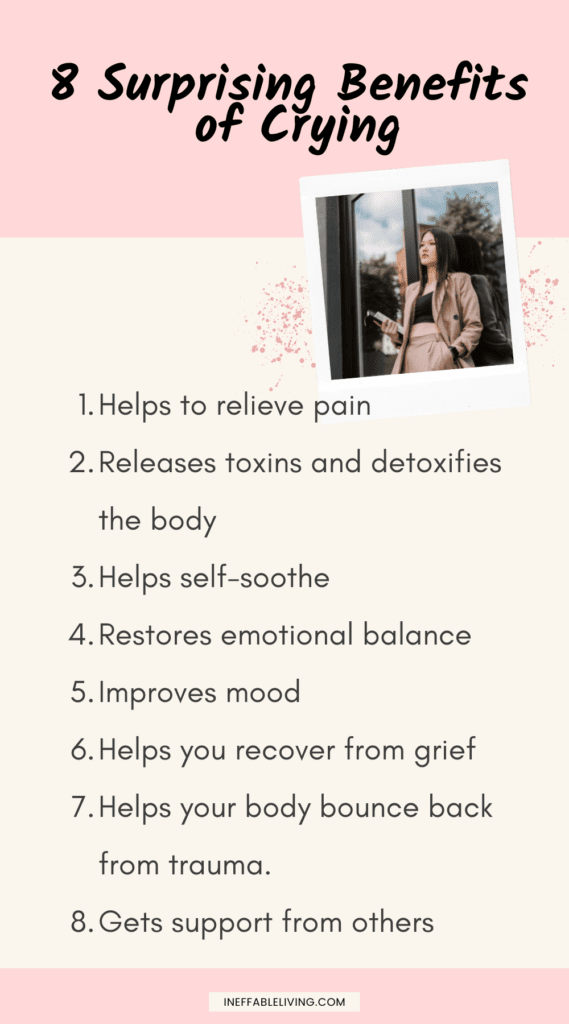
#30. It’s Good to Keep Crying For Those We’ve Lost.
“It’s good to keep crying for those we’ve lost, to keep feeling the ache, to let ourselves be in the sorrow and accept that it’s not ever going to go away.”
– Edith Eva Eger
#31. Life Is Not About Lost And Found.
“Each person used the verb “lost” in describing his or her grief.
“But life is not about lost and found,” I told them.
It’s about celebrating that the spirits of our loved ones came to us— sometimes for a few short days, sometimes for many decades—and it’s about letting go. About acknowledging the sorrow and joy that coexist in this moment, and embracing all of it.”
– Edith Eva Eger
#32. Not Making Peace With Our Grief Is Not a Compliment to Those Who’ve Died.
“If we can’t move on from our guilt and make peace with our grief, it’s damaging to our loved ones, and not a compliment to those who’ve died. We have to let the dead be dead, to stop yanking them up again and again, to let them go and to live our own best lives so they can rest in peace.”
– Edith Eva Eger
“To heal doesn’t mean to get over it, but it does mean that we are able to be wounded and whole, to find happiness and fulfillment in our lives despite our loss.”
– Edith Eva Eger
#33. What-Ifs Don’t Empower Us. They Deplete Us.
“What-ifs don’t empower us. They deplete us.”
– Edith Eva Eger
“Today you can say, ‘If I knew then what I know now, I would have done things differently.’ And that’s the end of the guilt.”
– Edith Eva Eger
#34. Time Doesn’t Heal. It’s What You Do With The Time.
“Grief has so many layers and flavors: sorrow, fear, relief, survivor’s guilt, existential questioning, diminished safety, fragility. Our whole sense of the world is interrupted and rearranged. The adage says, “Time heals all wounds.” But I disagree. Time doesn’t heal. It’s what you do with the time.
Sometimes people compensate for the upheaval of grief by trying to keep everything the same—jobs, routines, and relationships remain static. But when you’ve had a big loss, nothing is the same anymore. Grief can be an invitation to revisit our priorities and decide again—to reconnect to our joy and purpose, recommit to being the best we can be right now, to embrace that life is pointing us in a new direction.”
– Edith Eva Eger
Related: Dealing With a Breakup: How to Heal Properly and Love Yourself Again?
#35. There Will Always Be Questions With No Answers.
“There will always be questions with no answers.
Some things you’ll never understand. Don’t even try to.
There are so many reasons why—why this or that happened, or didn’t; why we are where we are; why we do what we do. Grief forces us to get clear about what’s my business, what’s your business, and what’s God’s business.”
– Edith Eva Eger
#36. Choose to Live Every Moment as a Gift, To Embrace What Is
“Grieving is difficult, but it can also feel good. You can revisit the past. You can even embrace it. You’re not stuck there. You’re here now. And you’re strong.
You can come to terms with what was and what wasn’t. And you can concentrate not on what you lost, but on what is left: the choice to live every moment as a gift, to embrace what is.”
– Edith Eva Eger

7. On Rigidity
#37. A Couple That Doesn’t Have Fights, Don’t Have Intimacy Either.
“When a couple tells me they never fight, I say, “Then you don’t have intimacy, either.”
Conflict is human. When we avoid conflict, we’re actually moving closer to tyranny than to peace. Conflict itself isn’t imprisoning. What keeps us trapped is the rigid thinking we often use to manage conflict.”
– Edith Eva Eger
Related: Resolving Marital Conflict: How to Repair Your Marriage
#38. You Can’t Want Something For Another Person. You Can Only Discover What’s Right For You.
“If you come in with an agenda, if you’re keeping score or trying to change someone else, then you’re not free. Freedom is when you embrace your power to choose your own response.
My patients say it all the time: “I want him to…” or, “I want her to…” But you can’t want something for another person. You can only discover what’s right for you.”
– Edith Eva Eger
“You can’t change the situation, you can’t change someone else’s mind, but you can look at reality differently. You can accept and integrate multiple points of view. This flexibility is our strength.
It’s what allows us to be assertive—not aggressive or passive or passive-aggressive. When we’re aggressive, we decide for others. When we’re passive, we let others decide for us. And when we’re passive-aggressive, we prevent others from deciding for themselves. When you’re assertive, you speak in statements.”
– Edith Eva Eger
#39. No One Grows With Criticism. So Eliminate It.
“We don’t empower others—or ourselves —when we launch into complaints, when we say here’s-what-you-did this, here’s-what-you-did that. No one grows with criticism. So eliminate it. No criticism. None, ever.
We do this for others, but most of all for ourselves, so we can live free of unrealistic expectations, and free of the anger that comes when our expectations are not met.”
– Edith Eva Eger
#40. If You Have Something to Prove, You’re Still a Prisoner.
“Many of us live as though we have something to prove. We can become addicted to having the last word. But if you’re trying to prove that you’re right or you’re good, you’re trying to make yourself into something that doesn’t exist. Every human is fallible. Every human makes mistakes. You’re not helpless—and you’re not a saint, either. You don’t have to prove your worth. You can just embrace it, celebrate that you’re imperfect and whole, that there will never be another you. Drop the agenda. If you have something to prove, you’re still a prisoner.”
– Edith Eva Eger
#41. Kindness Is Always Right.
“Do you want to be happy, or do you want to be right?”
The best way to let go of the need for control is to become powerful. Power has nothing to do with brawn or domination. It means you have the strength to respond instead of react, to take charge of your life, to have total ownership of your choices. You are powerful because you’re not giving your power away.
If you take back your power and still want to be right, then choose to be kind, because kindness is always right.”
– Edith Eva Eger
8. On Resentment
#42. Love Isn’t What You Feel. It’s What You Do.
“When we’re angry, it’s often because there’s a gap between our expectations and reality. We think it’s the other person who’s trapping and aggravating us— but the real prison is our unrealistic expectations. Often, we marry like Romeo and Juliet, without really knowing each other. We fall in love with love, or with an image of a person to whom we’ve assigned all the traits and characteristics we crave, or with someone with whom we can repeat the familiar patterns we learned in our families of origin. Or we present a false self, seeking love and a secure relationship by giving up who we really are. Falling in love is a chemical high. It feels amazing—and it’s temporary. When the feeling fades, we’re left with a lost dream, with a sense of loss over the partner or relationship we never had in the first place. So many salvageable relationships are abandoned in despair.
But love isn’t what you feel. It’s what you do.
There’s no going back to the early days of a relationship, to the time before you became angry and disappointed and cut off. There’s something better: a renaissance. A new beginning.”
– Edith Eva Eger
Related: 5 Basic Emotional Needs of Men and Women
#43. Divorce Doesn’t Make You Free.
“Every choice has a price, something you gain, and something you lose. One choice we can always make is to do nothing. To decide not to decide. To keep on going the way we are.”
– Edith Eva Eger
“A divorce can be an extreme way of continuing to do nothing. “What do you gain from a divorce? It gives you a piece of paper that says you’re now free to marry someone else.”
Divorce doesn’t resolve the emotional business of the relationship. It just gives you legal permission to repeat the same pattern with someone else! It doesn’t make you free.”
– Edith Eva Eger
#44. If The Initial Frustration Hasn’t Been Resolved, You Set Yourselves Up For Another Go-Round.
“Many couples have a three-step dance, a cycle of conflict they keep repeating. Step one is frustration. It’s left to fester, and pretty soon they move on to step two: fighting. They yell or rage until they’re tired, and fall into step three: making up. (Never have sex after a fight. It just reinforces the fighting!) Making up seems like the end of the conflict, but it’s really a continuation of the cycle. The initial frustration hasn’t been resolved. You’ve just set yourselves up for another go-round.”
– Edith Eva Eger
#45. You Can’t Know The Truth About Your Relationships Until You Deal With Your Own Wounds.
“Only you can decide if a relationship depletes or empowers you. But it’s not a question to answer quickly. You can’t know the truth about your relationships until you deal with your own wounds, until you bury and leave behind all the things from the past you’re still dragging around.”
– Edith Eva Eger
9. On Paralyzing Fear
#46. You’re Going To Be Fifty Anyway.
“Honey, you’re going to be fifty anyway—or thirty or sixty or ninety. So you might as well take a risk. Do something you’ve never done before. Change is synonymous with growth. To grow, you’ve got to evolve instead of revolve.”
– Edith Eva Eger
Related: Facing Your Fears: 5 Truths About Fear And 5 Ways To Conquer Fear And Get Unstuck
#47. We Have A Choice How Much Of Our Lives We Give Over To Fear.
“We should never stop seeking safety and justice, doing everything in our power to protect ourselves, our loved ones, our neighbors, our fellow humans. But we have a choice how much of our lives we give over to fear.
Fear uses the most insistent, relentless, provocative words: what if, what if, whatif? When fear comes like a panic storm, and your body shakes and your heart races and the trauma you already survived threatens to swallow you, take your own precious hand and say, “Thank you, fear, for wanting to protect me.” Then say, “That was then, this is now.” Say it over and over again. You already made it. Here you are. Wrap your arms around yourself and rub your own shoulders. “Attagirl,” you say. “Love you.”
You never know what’s coming from the outside. You can’t predict who might show up to cause harm—yell an insult, throw a punch, break a promise, betray your trust, drop a bomb, start a war. I wish I could tell you that tomorrow the world will be safe from cruelty and violence and prejudice, from rape and depravity and genocide. But that world may not ever come. We live in a world with danger, and so we live in a world with fear. Your safety isn’t guaranteed.
But fear and love don’t coexist. And fear doesn’t have to rule your life.
Releasing the fear starts with you.”
– Edith Eva Eger
Related: 4 Steps To Calculate Risks And Reduce Your Fear?
#48. Whatever We’re Looking For On The Outside, We Need To Address Within.
“When we’re living with a lot of doubt, we’re on the lookout for signs that will calm—or confirm!—our fears. But whatever we’re looking for on the outside, we need to address within.”
– Edith Eva Eger
#49. The Language Of Fear Is The Language Of Resistance.
“I can’t means I’m helpless. And unless you’re an infant, that simply isn’t true.
When we say “I can’t,” what we’re really saying is “I won’t.” I won’t accept it. I won’t believe. I won’t escape the fear. I won’t stop policing and monitoring him. The language of fear is the language of resistance. And if we’re resisting, we’re working very hard to ensure that we go nowhere. We deny growth and curiosity. We’re revolving, not evolving, shutting down opportunities for change.”
– Edith Eva Eger
Related: How to Overcome Fears and Phobias Using Cognitive Behavioral Therapy (CBT)?
#50. We Aren’t Born With Fear. Somewhere Along The Way, We Learn It.
“We aren’t born with fear. Somewhere along the way, we learn it.”
– Edith Eva Eger
“Often the emotional responses that get ingrained in us aren’t even our own— they’re ones we’ve learned from watching others. So you can ask yourself, “Is this my fear? Or someone else’s?” If the fear really belongs to your mother or father or grandparent or spouse, you don’t have to carry it anymore. Just put it down.
Release your hold. Leave it behind.
Then make a list of the fears that remain.
This is how you begin to face your fears, rather than fighting them, or running from them, or medicating them.”
– Edith Eva Eger
#51. Perfect Means Never.
“Often when we’re stuck it’s not that we don’t know what to do. It’s that we’re afraid we won’t do it well enough. We’re self-critical. We hold high standards. We want others’ approval—most of all, our own—and think we can earn it by being Superman or Superwoman. But if you’re perfectionistic, you’re going to procrastinate, because perfect means never.
Here’s another way to think about it. If you’re perfectionistic, you’re competing with God. And you’re human. You’re going to make mistakes. Don’t try to beat God, because God will always win.
It doesn’t take courage to strive for perfection. It takes courage to be average. To say, “I’m okay with me.” To say, “Good enough is good enough.””
– Edith Eva Eger
#52. When You Risk, You Don’t Know How It Will Turn Out. But You’ll Still Be Better Off.
“Leaving would require her to exchange a known reality for an unknown one. This is usually what stops us from taking risks. We’d rather stick with what we know, painful or untenable as it is, than face what we don’t know.
When you risk, you don’t know how it will turn out. It’s possible that you won’t get what you want, that things will be worse. But you’ll still be better off, because you’ll be living in the world as it is, not in an imaginary reality created by your fear.”
– Edith Eva Eger

10. On Judgment
#53. We’re Not All Descendants Of Nazis. But We Each Have A Nazi Within.
“We’re not all descendants of Nazis. But we each have a Nazi within.
Freedom means choosing, every moment, whether we reach for our inner Nazi or our inner Gandhi. For the love we were born with or the hate we learned.
The inner Nazi is the part of you that has the capacity to judge and withhold compassion, that denies you the permission to be free and victimizes others when things don’t go your way.
I’m still learning to let go of my inner Nazi.”
– Edith Eva Eger
#54. It’s Better To Start With Yourself.
“When we live in the prison of judgment, we don’t just victimize others. We victimize ourselves.”
– Edith Eva Eger
“We’re all victims of victims. How far back do you want to go, searching for the source? It’s better to start with yourself.”
– Edith Eva Eger
11. On Hope
#55. There’s No Freedom In Denying Reality.
“To ask how hope is possible in the face of dire realities is to confuse hope with idealism. Idealism is when you expect that everything in life is going to be fair or good or easy. It’s a defense mechanism, just like denial or delusion.
Honey, don’t cover garlic with chocolate. It doesn’t taste good. Likewise, there’s no freedom in denying reality, or trying to cloak it in something sweet. Hope isn’t a distraction from darkness. It’s a confrontation with darkness.”
– Edith Eva Eger
#56. Hope Is The Boldest Act Of Imagination
“If we decide something’s hopeless or impossible, it will be. If we take action, who knows what we might manifest? Hope is curiosity writ large. A willingness to cultivate within yourself whatever kindles light, and to shine that light into the darkest places.
Hope is the boldest act of imagination I know.”
– Edith Eva Eger
#57. If We Survive Today, Tomorrow We’ll Be Free.
Hope doesn’t obscure or whitewash reality. Hope tells us that life is full of darkness and suffering—and yet if we survive today, tomorrow we’ll be free.
– Edith Eva Eger
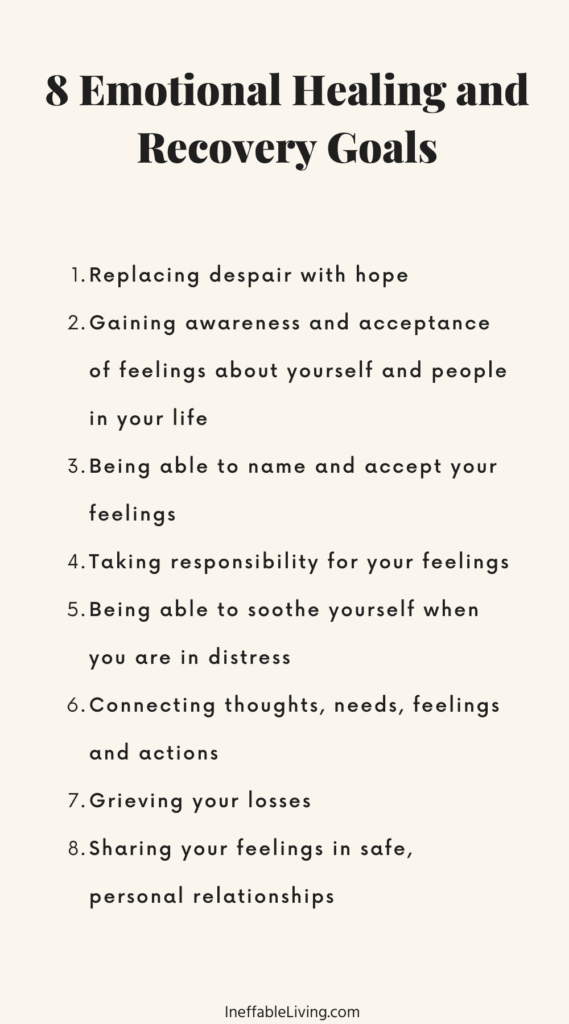
12. On Forgiveness
#58. Forgiveness Is not about cutting someone out. It’s about letting go.
“I have the power to free myself.
So do you.
Forgiveness isn’t something we do for the person who’s hurt us. It’s something we do for ourselves, so we’re no longer victims or prisoners of the past, so we can stop carrying a burden that harbors nothing but pain.
Another misconception about forgiveness is that the way to make peace with someone who has harmed us is to say, “I’m done with her.”
It doesn’t work that way. It’s not about cutting someone out. It’s about letting go.
As long as you say you can’t forgive someone, you’re spending energy being against rather than being for yourself and the life you deserve. To forgive isn’t togive someone permission to keep hurting you. It’s not okay that you were harmed. But it’s already done. No one but you can heal the wound.”
– Edith Eva Eger
#59. The Best Thing To Do With Anger Is To Learn To Channel It, And Then Dissolve It.
“Silent rage is self-destructive. If you’re not actively, consciously, intentionally releasing it, you’re holding on to it. And that’s not going to do you any good.
Neither is venting anger. That’s when you blow your top. It might feel cathartic in the moment, but others foot the bill. And it can become addictive.
You’re not really releasing anything. You’re just perpetuating a cycle—a harmful one.
The best thing to do with anger is to learn to channel it, and then dissolve it. It might sound simple enough. But if you’ve been taught to be a “good girl” or a “good boy,” taught that anger is unacceptable or frightening, if you’ve been hurt by someone else’s rage, it isn’t easy to let yourself feel—much less express— your anger.”
– Edith Eva Eger
#60. We Can Even Learn To Cherish The Wound.
“We can’t take away suffering, we can’t change what happened—but we can choose to find the gift in our lives. We can even learn to cherish the wound.”
– Edith Eva Eger
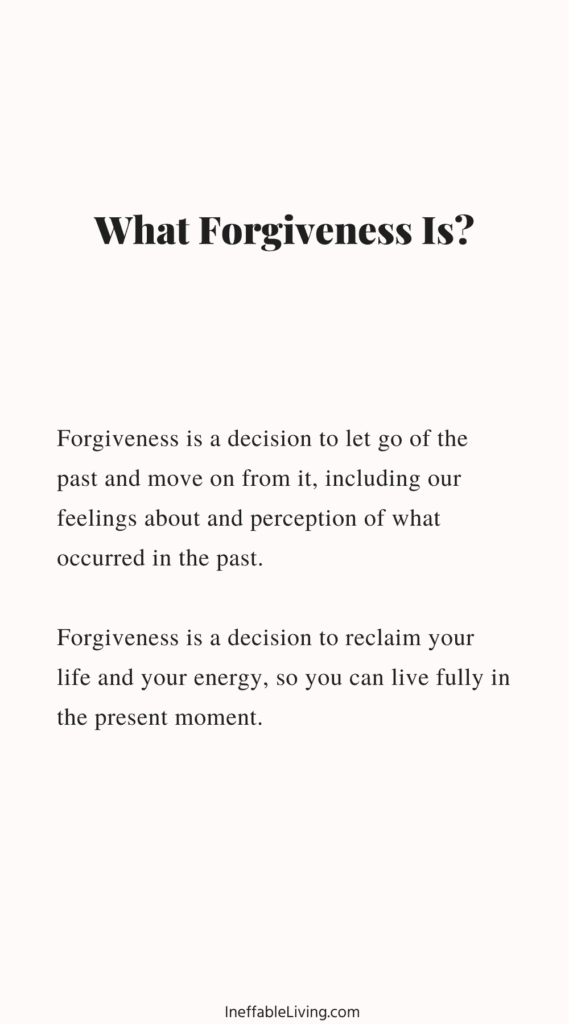
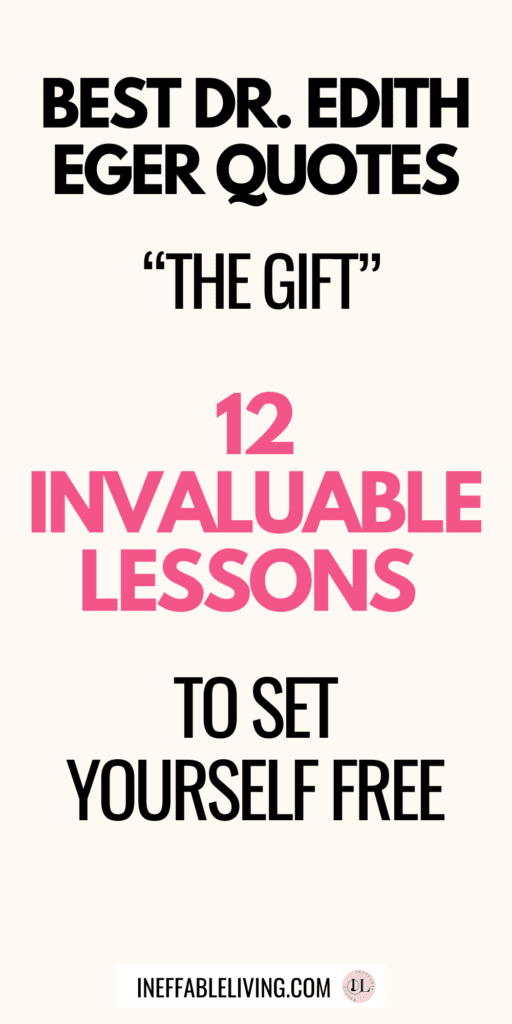
Resources
Portions of this article were adapted from the book The Gift: 12 Lessons to Save Your Life, © September 3, 2020, by Dr. Edith Eger. All rights reserved.

